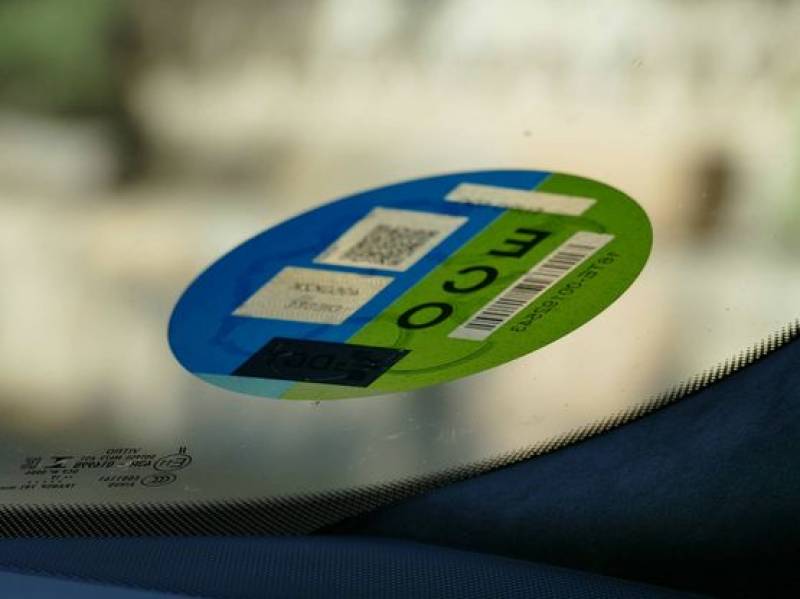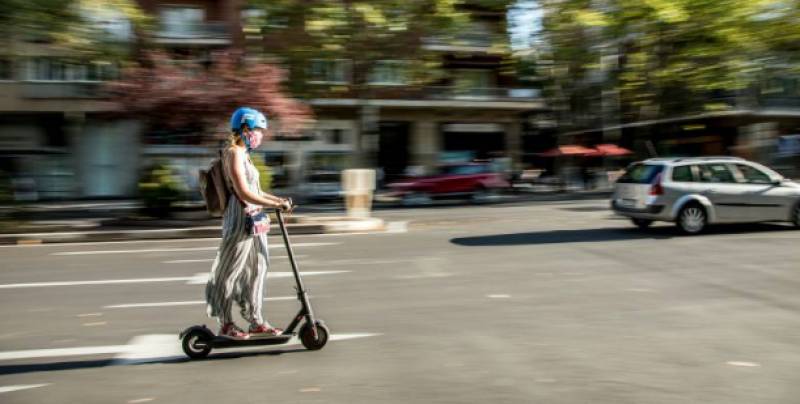- Region
- Vega baja
- Marina Alta
- Marina Baixa
- Alicante
- Baix Vinalopo
- Alto & Mitja Vinalopo
-
ALL TOWNS
- ALICANTE TOWNS
- Albatera
- Alfaz Del Pi
- Alicante City
- Alcoy
- Almoradi
- Benitatxell
- Bigastro
- Benferri
- Benidorm
- Calosa de Segura
- Calpe
- Catral
- Costa Blanca
- Cox
- Daya Vieja
- Denia
- Elche
- Elda
- Granja de Rocamora
- Guardamar del Segura
- Jacarilla
- Los Montesinos
- Orihuela
- Pedreguer
- Pilar de Horadada
- Playa Flamenca
- Quesada
- Rafal
- Redovan
- Rojales
- San Isidro
- Torrevieja
- Comunidad Valenciana
article_detail
Understanding the environmental stickers for low emission zones in Spain
Environmental badges classify vehicles in Spain based on their environmental impact

Many cars will be restricted from driving on certain roads in 2023 as the low emission zones (ZBE) come into force in cities across Spain. This year, urban areas with a population of 50,000 or more will have to set up limited traffic zones to combat environmental and acoustic pollution.
With a special focus on town and city centres, older cars that don’t have a badge classifying their energy efficiency and environmental impact won’t be allowed to enter certain streets, and will face a substantial fine if they do.
The regulations are causing a fair bit of chaos as municipalities scramble to determine the best way to implement the measure. Areas like Madrid city centre and Rondas de Barcelona have put a complete ban on polluting cars, while Cartagena has decided instead to limit vehicle traffic to residents and businesses.
There are currently four distinct environmental labels:
- Label 0 emissions: this blue sticker identifies the most efficient vehicles, which are electric, fuel cell or plug-in hybrids with a range of more than 40 kilometres.
- Eco Label: designed for hybrid or gas cars (CNG, LNG and LPG) and for plug-in hybrids with a range of less than 40 kilometres.
- Label C: the green sticker is for internal combustion vehicles that comply with the latest EURO emissions (EURO 4.5 and 6 for petrol and 6 for diesel). Petrol cars registered since January 2006 and diesel registered since September 2015.
- Label B: yellow stickers indicate a vehicle that meets the previous EURO emission specifications (EURO 3 for petrol and 4 and 5 for diesel) and petrol vehicles registered since January 2001 and diesel from 2006.
How to display an environmental sticker
While it’s mandatory to display an ITV sticker on the car windshield, environmental stickers aren’t actually compulsory, but the DGT highly recommends them for anyone travelling in a city. However, as with most things in Spain, it’s up to the individual town halls so it’s best to check locally whether or not you need one.
Many other European countries do require vehicles to have a label on display.
For drivers who do want to display an environmental sticker, there are strict guidelines. The tag should only be placed in the lower right-hand corner of the windshield inside the glass. If there’s any chance it could obstruct the driver’s vision, a fine of 200 euros will follow.
For motorcycles, the label must simply be placed in any visible place.
Where to get one
In Spain, an environmental badge can be purchased for 5 euros in any Post Office, at the Network of Workshops of the Spanish Confederation of Workshops (CETRAA) and at the Institute of Environmental and Automotive Studies (IDEAUTO).
Find all the latest motoring and travel news here or join our Driving in Spain Facebook group for regular updates
Image: DGT
staff.inc.ali
Loading
Sign up for the Spanish News Today Editors Roundup Weekly Bulletin and get an email with all the week’s news straight to your inbox
Special offer: Subscribe now for 25% off (36.95 euros for 48 Bulletins)
OR
you can sign up to our FREE weekly roundup!
Read some of our recent bulletins:
Discount Special Offer subscription:
36.95€ for 48 Editor’s Weekly News Roundup bulletins!
Please CLICK THE BUTTON to subscribe.
(List price 3 months 12 Bulletins)
Read more stories from around Spain:
Contact Murcia Today: Editorial 000 000 000 /
Office 000 000 000



















